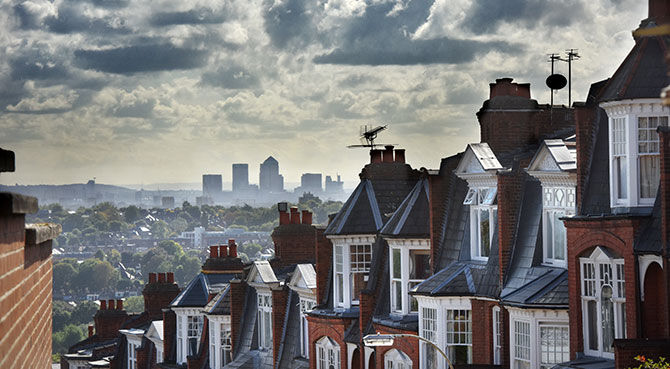Hometrack ups forecast for property price rise
What effect is Brexit having on house prices in the UK and will it continue? A new report by Hometrack analyses the movement of house prices across the country for the first half of 2017.

Brexit having an effect on the property sector
While price growth in London will remain in the doldrums, Hometrack's analysis of 20 British cities says that while Brexit uncertainty remained a drag on the property sector, house prices are on track to grow at an annual rate of between 6-7 per cent over the course of this year.This compares to Hometrack's prediction at the start of the year of a four per cent rise during 2017. Hometrack said the new, increased forecast was on the back of substantial price growth this year in cities such as Birmingham, Manchester and Leeds.Birmingham has become the fastest-growing major centre in terms of house price increases, recording a 7.8 per cent increase over the past 12 months, with prices in Manchester rising 6.4 per cent over a year that has seen a sharp increase in demand.Richard Donnell, research and insight director at Hometrack, said, “Despite a material slowdown in the rate of house price growth in South Eastern England, the headline rate of city house price inflation is holding up, despite the squeeze on real incomes and uncertainty around Brexit.”He said in London, the Brexit vote appeared to have had a greater impact on buyer sentiment which, coupled with affordability issues, had led to the annual growth rate slowing to 2.6 per cent over the past 12 months – its lowest rate in more than five years, although the average price in London of £492,700 remained by far the highest in the country and was, for example, almost three times the average in Birmingham.Property prices on the whole slowing down
Mr Donnell added, “However, although house price inflation has fallen sharply in the capital, it is starting to flatten out and the rate of growth is likely to avoid year-on-year price falls in the coming months.”Aside from London, Bristol, Oxford and Cambridge all recorded significant slowdowns in house prices growth over the past 12 months.Kate Faulkner, from the propertychecklists.co.uk website, commented, “It’s clear that property prices continue, in the main, to slow.Other house price analysis:
- Zoopla finds 'micro-markets' developing for UK homes
- Few houses on market as SE England drags down price growth
- UK house prices 'rising at slowest rate since 2013'
“Rightmove’s lead indicator on how sellers are feeling suggests that asking prices have reduced for the first time since 2009, although there is a ray of light coming from Nationwide and Hometrack, suggesting a slight uptick this month.“In reality, what we are seeing is a natural slowdown from the recovery in the South and East, while in the rest of the UK prices have done well in the last few years, albeit not as robust as their southern and eastern counterparts.”A average house prices in 20 major cities in June, with year-on-year change:
- Aberdeen, £184,300, -2.7%
- Belfast, £130,600, 4.3%
- Birmingham, £154,900, 7.8%
- Bournemouth, £280,400, 5.2%
- Bristol, £270,900, 5.6%
- Cambridge, £425,500, 1.9%
- Cardiff, £195,800, 4%
- Edinburgh, £211,100, 6.5%
- Glasgow, £117,700, 3.3%
- Leeds, £161,400, 5.4%
- Leicester, £164,500, 5.8%
- Liverpool, £118,300, 4.8%
- London, £492,700, 2.6%
- Manchester, £155,700, 6.4%
- Newcastle, £126,600, 2.4%
- Nottingham, £146,000, 6%
- Oxford, £424,800, 2.1%
- Portsmouth, £229,700, 5.6%
- Sheffield, £133,700, 4.7%
- Southampton, £228,100, 5.7%
Access hundreds of global services and suppliers in our Online Directory

Get access to our free Global Mobility Toolkit

©2025 Re:locate magazine, published by Profile Locations, Spray Hill, Hastings Road, Lamberhurst, Kent TN3 8JB. All rights reserved. This publication (or any part thereof) may not be reproduced in any form without the prior written permission of Profile Locations. Profile Locations accepts no liability for the accuracy of the contents or any opinions expressed herein.





































